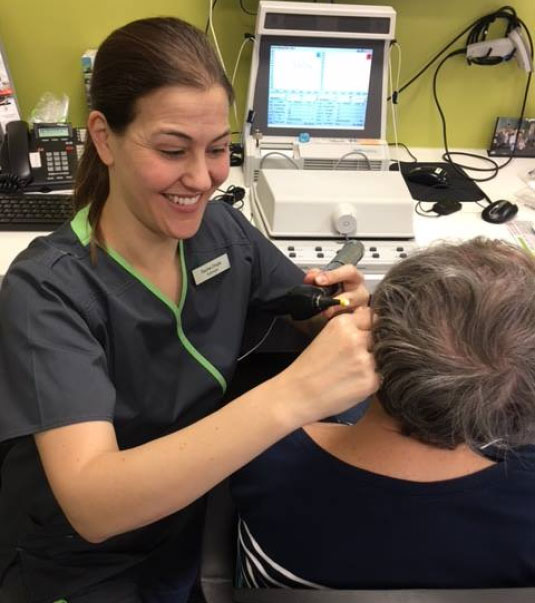A BALANCED APPROACH
The inner ear contains the “cochlea,” which produces nerve impulses that are transmitted via the auditory nerve to the brain, as well as the “vestibular system,” a collection of structures that provides the body with a sense of balance and spatial awareness. These structures include three semicircular canals that are lined with sensory hair cells […]
THE IMPORTANCE OF A HEARING TEST

One important reason for having your hearing tested is that any detected hearing loss will prompt you to have its cause diagnosed. Generally speaking, there are two types of hearing loss: “sensorineural” and “conductive.” Sensorineural hearing loss occurs when there is damage to the inner ear (cochlea) or to the nerve pathways from the inner […]
HEAR BETTER, LIVE LONGER
Hearing-impaired elderly individuals who elect to wear hearing instruments are likely to experience a higher quality of life than those with hearing losses that go untreated. Thus, the decision to be fitted with and wear a hearing instrument can be a significant factor in the lives of seniors, among whom the incidence of hearing impairment […]
FREQUENCY SHIFTING
High-frequency hearing loss makes it difficult to perceive many of the high-frequency voiceless consonants such as the “t,” “k,” “f,” “th,” “sh,” and “s” sounds. As a result, those suffering from high-frequency loss find it difficult to understand conversation. Hearing instrument manufacturers understand that this problem cannot be fully overcome simply by amplifying the higher […]
GROWING ACCUSTOMED TO HEARING AGAIN
When hearing-impaired individuals are first fitted with their new hearing instruments, they may be somewhat overwhelmed by the many sounds that have eluded them for so long. It may take a while for them to become adjusted to hearing words and sounds that they have yet to become accustomed to hearing more clearly. With this […]
MAKING FRIENDS WITH ANEMONES
“Hair cells” are sensory cells located in the inner ear that get their name from their hair-like projections, called “stereocilia.” Hair cells play a critical role in enabling us to hear because they sense sound waves and convert them to electrical signals that are sent to the brain. Unfortunately, once hair cells in the human […]
WOULD YOU LIKE SOME ASSISTANCE?
For those who would like to augment their hearing instruments with other devices that promote better hearing, the hearing specialist can suggest any of a number of “assistive listening devices” (ALDs). These apparatuses, which are often referred to as “binoculars for the ears,” utilize a microphone to pick up sound, transmission technology to deliver the […]
HARDLY INCONSEQUENTIAL
While some persist in viewing hearing loss as an inconsequential part of aging, significant hearing impairment has been linked with substantial physical, psychological, and social ramifications. These consequences include isolation, loneliness, depression, anxiety, falls and other accidents, and increased mortality rate. In addition to increasing friction between friends, workers, and family members, hearing loss contributes […]
DIET AND HEARING
While there is no evidence that dietary supplements prevent hearing loss or improve hearing, some studies suggest that a healthy diet is conducive to good hearing. One study found that a diet high in sugar and carbohydrates may impair hearing by adversely affecting vascular health. Another study found that women who ate fish at least […]
DIABETES HEARING LOSS
While nerve damage (neuropathy) associated with diabetes is commonly concerned with the hands and feet, hearing loss can be another complication of uncontrolled diabetes. Research indicates that people with uncontrolled type-1 or type-2 diabetes are twice as likely as other individuals to experience hearing loss. It seems that diabetes affects hearing in a number of […]

